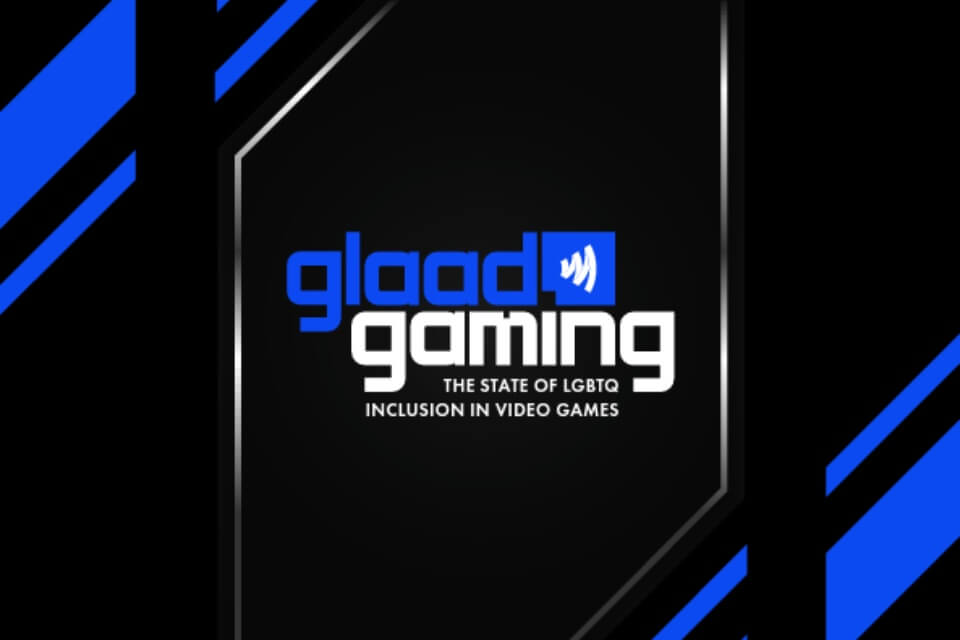GLAAD, a lesbian, gay, bisexual, transgender and queer (LGBTQ) media advocacy organisation, has released its inaugural State of LGBTQ Inclusion in Video Games report.

The report aims to educate the games industry on the current state of LGBTQ representation, make a fact-based business case for LGBTQ inclusion, and provide a playbook for more authentic representation.
Developed by the GLAAD Media Institute, in partnership with the Nielsen Games Team, data in GLAAD’s inaugural gaming report revealed that the video game industry lags far behind film and television industries when it comes to representation, visibility and inclusion.
The report also showcased eye-opening spending and playing habits among both LGBTQ and non-LGBTQ gamers when it comes to LGBTQ inclusion in video games, providing valuable data to studio creatives and executives and a deeper understanding of what LGBTQ gamers face online while playing, along with how and why inclusion in video games is good for the bottom line.
Key findings include:
- One in five (17%) of active video game players are LGBTQ, but less than 2% of games on major consoles and PC include LGBTQ characters, based on publicly available tags and lists denoting LGBTQ-inclusive content.
- The number of active LGBTQ video game players has increased 70% percent, up from the 10% counted in the 2020 Nielsen Games 360 Survey.
- 7 out of 10 non-LGBTQ gamers said learning a main character in a game is LGBTQ would either positively influence, or make no difference to their likelihood to buy or play the game, while LGBTQ gamers are not only more likely to buy or play such a game, but nearly 3 out of 4 say seeing characters with their gender identity or sexual orientation represented well in a game makes them feel better about themselves.
- Large margins of both LGBTQ and non-LGBTQ gamers agreed that they appreciate how gaming allows them to experience perspectives of people different from themselves, 80% and 67% respectively.
As more than 500 anti-LGBTQ bills were proposed in 2023 alone, GLAAD’s new report found that LGBTQ gamers are gravitating more toward video gaming communities for connection and belonging:
- 55% of LGBTQ gamers who reside in states where there has been recent anti-LGBTQ legislation proposed or passed say they feel more accepted in the gaming community than in general public areas where they live.
- 65% of LGBTQ gamers who reside in states where anti-LGBTQ legislation has been recently passed or proposed say they depend on video games to get them through tough times.
- 75% of LGBTQ gamers who reside in states where anti-LGBTQ legislation has been recently passed or proposed say that gaming allows them to express themselves in a way that they don’t feel comfortable doing in the real world.
The Report also found that while gaming is an important social outlet for LGBTQ gamers, harassment while playing online is commonplace, to the extent that many gamers quit playing:
- 71% of gamers said they have friends they can game with, and 63% wish they had more friends they could play or talk about games with.
- 52% of LGBTQ gamers reported experiencing harassment while playing online.
- 42% of LGBTQ gamers reported that they have avoided playing a game because they thought they would be harassed, and 27% have quit a game because of harassment.
GLAAD President & CEO Sarah Kate Elliss said: “Particularly for LGBTQ gamers, gaming is not only an escape and source of entertainment, but also an important outlet of self-expression. It is past time for LGBTQ gamers to see our community represented in games that they play and to be safe while they connect with other gamers and express themselves. This report presents a clear business case for the industry to take action and address the needs of a rapidly growing portion of gamers. The message is clear: gamers want more inclusive LGBTQ representation in their games and the industry must become more inclusive.”
GLAAD is also providing the following recommendations for games industry leaders to meet the moment and enhance how LGBTQ people are seen in their products and the industry at-large:
- The percentage of games with LGBTQ representation should be proportional to the share of gamers who are LGBTQ.
- Game developers should strive for representation that promotes inclusivity and acceptance.
- The game industry should take responsibility for making their communities more inclusive.
- The game industry should consult LGBTQ media content experts.
- LGBTQ game industry workers should be hired in positions of authority.
You can read the full report here.
Empower Up’s own LGBTQ+ section is also home to a series of primer articles to help get your games started on its EDI journey > https://empower-up.com/topic/lgbtq-plus/



